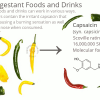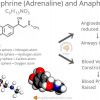The following key questions need to be answered in order to avoid confusion concerning CAM related terminology:
- CAM – What do Complementary and Alternative Mean?
- Is CAM and Integrative/Integrated Medicine the Same?
- What is a Natural Product?
- What is a Dietary Supplement?
- Why are Dietary Supplements so Popular?
- Are all Dietary Supplements CAM?

CAM – What do Complementary and Alternative Mean?
The words ‘complementary’ and ‘alternative’ used in the term CAM have the following distinct meanings:
Complementary
Complementary refers to using CAM in conjunction with conventional medicine e.g. aromatherapy to improve a person’s well-being following surgery.
Although often viewed as distinct entities (each with their pros/cons and advocates/antagonists), the reality is that for as long as the age of science has existed, there has been an ongoing process of incorporating the best aspects of CAM into conventional medicine [See Types of Complementary and Alternative Medicine (CAM) and in particular CAM, Natural Medicine and Treatment – Fact or Fiction?]
The merging process of complementary medicine and therapies (that have proven medical worth) with conventional medicine is a trend that will undoubtedly continue far into the future. Proven medical worth can be defined as:
“Scientific studies (in agreement about the effectiveness of the characteristic/trait) which are published in reputable scientific journals and that have passed independent and rigorous scientific review.”
In relation to dog allergies, human based scientific studies apply to people allergic to dogs, whereas dog based scientific studies would need to be undertaken for allergies in dogs.
Alternative
Alternative medicine implies using CAM instead of conventional medicine e.g. biofield therapy to treat cancer in place of conventional chemotherapy.
Is CAM and Integrative/Integrated Medicine the Same?
Integrative/Integrated medicine or health practitioners (IM) consider that whereas ‘complementary’ may include therapies whose safety and efficacy is still under evaluation, IM utilizes only those complementary therapies that have a solid scientific basis. It is an holistic or synergistic approach that incorporates mind, body and spirit and values a person’s well-being by placing equal emphasis on preventing and curing disease.
However, the term ‘integrated medicine’ is not without its critics who challenge it on various levels e.g. those who feel it represents a contradiction in terms and that medicine based on science cannot be equated with practices that are not.
What is a Natural Product?
A ‘natural product’ is a term that encompasses:
“Various herbal medicines, vitamins, minerals and other ‘natural’ items such as probiotics.”
Therefore, it is an umbrella term that incorporates a vast number of potential ingredients and compounds each with their distinctive biology, chemistry and medicinal properties.
Despite millennia of anecdotal evidence and decades of scientific investigations, the reality is that we are only still scratching the surface regarding understanding the mechanics, interactions and potential medicinal applications of ‘natural products’ e.g. less than 1% of tropical rain forest plant species have been screened for their bioactivity…a figure that is still magnitudes greater than the fungi and microbes in this environment that have so far been evaluated for their medicinal potential! (Herndon and Butler 2010).
What is a Dietary Supplement?
Although the legality varies between countries with regards to what constitutes and defines a dietary supplement as well how it can be sold, the U.S. Dietary Supplement Health and Education Act of 1994 (DSHEA) sets a clear framework that addresses issues such as:
- They are not considered a substitute for food but are intended to supplement or add to one’s diet.
- Labeling and health claims. They must be labeled as a dietary supplement, and although they may claim to help maintain health and well-being, they cannot make claims of preventing, treating or curing disease.
- Ingredients. They contain one or more dietary ingredients or their constituents. This primarily includes amino acids, herbs or other plants (botanicals), minerals, vitamins but also certain other substances that come from a natural source e.g. omega-fatty acids. Herbal supplements are one type of dietary supplement.
- Usage. They are available in capsule, gel variant, liquid, powder or tablet form and are taken orally i.e. you eat or drink them.
However, CAM and dietary supplements are not regulated in the same manner as medicines in many countries and this also includes the U.S. (FDA) [See Risks of Using Complementary and Alternative Medicine (CAM) ]. Manufacturers will typically include a disclaimer on such products e.g. “Food supplements must not be used as a substitute for a varied and balanced diet and healthy lifestyle. If you are pregnant, breastfeeding, taking any medications or under medical supervision, please consult a doctor or healthcare professional before use….” (Holland & Barrett), and in the U.S there will be a standard warning, namely, “This statement has not been evaluated by the U.S. Food and Drug Administration (FDA). This product is not intended to diagnose, treat, cure, or prevent any disease.”
Therefore, bearing in mind the lack of regulation of dietary supplements in most countries and the potential problems this can cause, the following question needs to be addressed, namely:
Why are Dietary Supplements so Popular?
The reality is that most people are simply unaware that dietary supplements and CAM are not regulated like conventional medicines. Even if they are aware, advertising by the big brands can play a significant role in reassuring them. Still, natural products and herbal medicines have been used for millennia and probably for as long as man has existed to help prevent and treat disease. Aside from the anecdotal evidence accumulated over thousands of years, decades of scientific studies have found that although some natural products and treatments may be harmful or have no effect, others do seem to exhibit useful properties e.g. the antimicrobial properties of garlic (Ankri and Mirelman 1999).
People opt to use dietary supplements for a variety of reasons aside from the obvious possible health benefits they may bestow. For example, whether right or wrong, the notion that they are ‘natural’ appeals to some people, others consider them an ‘investment’ or ‘safety net’ given today’s modern lifestyle (e.g. Echinacea may decrease the incidence and duration of the common cold Shah et al. 2007 ) whilst in some countries, people feel they represent the best option if they cannot afford conventional medical care.
Therefore, for the reasons noted in Risks of Using Complementary and Alternative Medicine (CAM), anyone considering using supplements must apply due diligence concerning their own health and safety e.g. try to determine the supplement efficacy, side-effects (both short and long-term), interactions (with medical conditions and other medications) and find out if they are safe for all age groups etc.
Are all Dietary Supplements CAM?
The dynamic and fluid nature of CAM gives rise to various issues which contribute to the controversy and confusion that surrounds it and are perceived by critics as a weakness. Aside from whether a given remedy or therapy is safe and effective, concerns such as a lack of ‘absolutes’ add significantly to the problem e.g. CAM remedies may contain only ‘natural’ ingredients whereas others may also include the addition of non-natural additives, or CAM ingredients may be natural but not always safe, or the potential quagmire of categorizing and systematizing the various remedies, treatments and therapies.
The question, “Are all Dietary Supplements CAM?” mirrors this situation with opinions of proponents in this field ranging from “Yes”, “No”, to “Well…..” Steering a middle path, we can say that although natural products are often available as dietary supplements, it is the application or use of a given supplement that determines whether it is thought of as CAM.
The next article in this series, Understanding Natural Treatment, will consider the Types of Complementary and Alternative Medicine (CAM).














